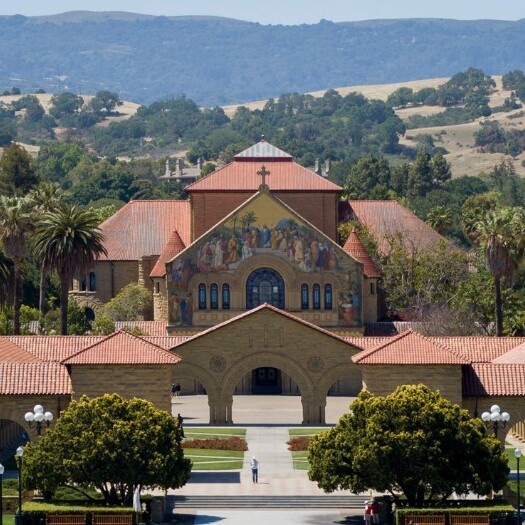
There are no pro-Palestinian encampments on Stanford's California campus - but the university has preemptively warned students that they could face disciplinary action if they follow their peers at schools across the country in erecting tents and protesting the war in Gaza.
"The university supports and encourages the exercise of your right to peaceful expression in a manner consistent with campus policies," C. Matthew Snipp, the interim vice provost for student affairs, wrote in a letter to the student body on Wednesday evening.
Snipp emphasized, however, that student protests would be restricted to a "designated free speech area" between 8 a.m. and 8 p.m.
"Stanford's policy on campus disruptions prohibits the disruption of classes, university events and the conduct of university business," the letter continued. "In addition, university policy prohibits overnight camping, limits the use of amplified sound and prescribes permitted uses of the Main Quad."
In the last week, Gaza solidarity encampments have spread from Columbia University to more than 30 colleges and universities across the country. The internal politics of these protests have been subject to intense scrutiny: Jewish students have participated in the protests at many schools - even holding Passover Seders inside the encampments. Some, however, have alleged that the protests have led to a spike in on-campus antisemitism.
There have been at least 400 arrests linked to the protests, according to the New York Times. The New York Police Department has arrested dozens of students at Columbia and New York University. In Texas, law enforcement arrived - some on horseback - clad in riot gear and arrested more than 50 students.
In addition to threatening students with internal conduct referrals, Snipp also wrote that the protests, "could also result in arrest if laws are violated."
Stanford did not immediately respond to HNGN's request for comment.
© 2026 HNGN, All rights reserved. Do not reproduce without permission.








